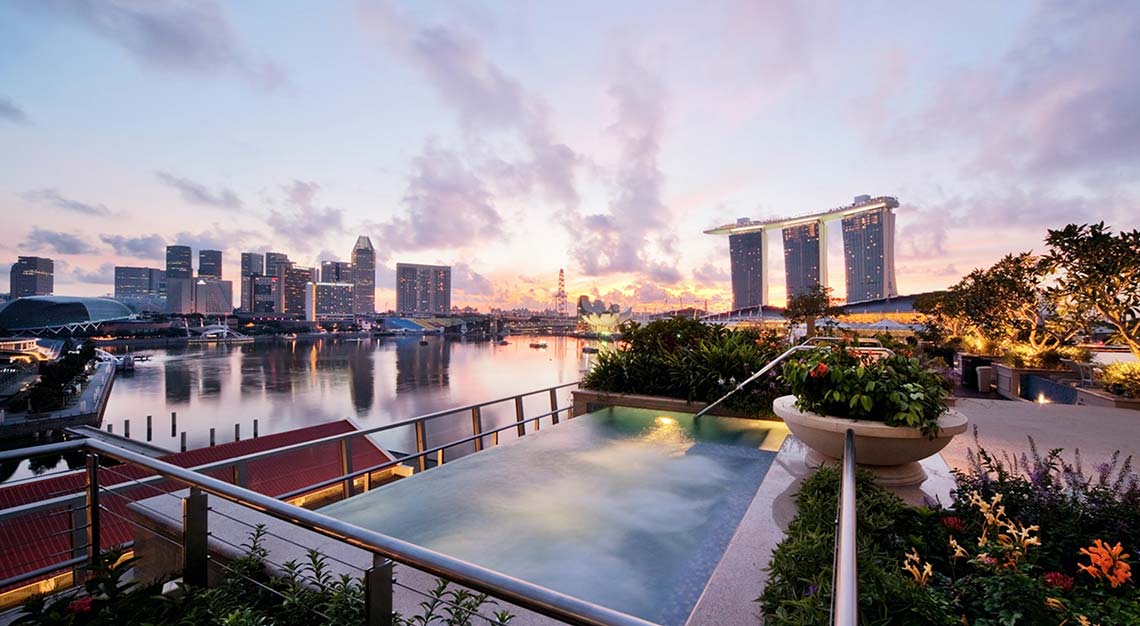Brands must remain edgy, says Ho Kwon Ping, if they wish to remain relevant
The roots of Banyan Tree Holdings date back to when a young Ho Kwon Ping and his wife—he a budding journalist then, she a graduate student—lived in a little fishing village called Banyan Tree Bay. Simpler times with “no cars, just bicycles,” which nonetheless formed one of the most idyllic periods of their lives. To them, the Banyan Tree evoked the romance of travel—the discovery of different cultures and the beauty of the natural environment. As a concept, however, it was “never really well written down,” Kwon Ping reveals. “We had to find our way and discover what we wanted—and had—to do, which happily coincided with what people were leaning towards.”
Yet today, Banyan Tree has emerged as one of the world’s leading independent, multi-branded hospitality groups, with additions like Banyan Tree Escape, Banyan Tree Veya, Dhawa, Garrya and Homm under its fold. Its upward trajectory tells of a certain willingness—resolve, even—to live, as it were, on the edge, not afraid of testing the water and stretching beyond its comfort zone in order to stay relevant.

“A brand is never established just once. It’s very much alive and organic, needing to be fed and nurtured. There are real risks to any brand and there’s no guarantee that a successful brand today will sit at the top tomorrow. If you think that your brand consists only of a logo, pricing and advertising, then it’s going to die out very quickly. Never assume that just because you’ve created something great, people will love it forever.
To continually reinvent itself, a brand needs to be edgy, rather than stodgy. Edginess is the ability to constantly interact with your consumer, so there’s a healthy, ongoing conversation about the direction a brand should be headed towards. A brand can try to be edgy, but if consumers think it’s being cliché, it must also be ready to pivot. We all know of cases where brands have become too commercialised. The key is to identify what a brand’s core attributes are, so it can stay loyal to its basic character while being innovative enough to attract new consumers.
At the end of the day, success means living a purposeful life and feeling you’ve achieved something that—in your own small way—you’re proud of. In the case of Banyan Tree, our success is rooted in the fact that we’re a brand of Asian origins. There aren’t many Asian hospitality brands that have succeeded internationally. Ultimately, this means that we’ve been able to remove many of the existing glass ceilings in the industry—such as appointing the first Thai woman to be the general manager of a luxury hotel—and challenged the unspoken ‘rule’ that luxury tourism is headed by Westerners.
A common mistake people make is to equate a good manager with a good leader. It’s crucial to recognise that there’s a vital difference between the two. A good manager is someone who optimises whatever resources they have to achieve the greatest measurable result. A good leader, on the other hand, is someone who can inspire people to aspire beyond themselves. Whether in politics, religion or business, a good leader inspires others to look beyond their own selfish needs, so they’re willing to come together and work as a community.
Finding zen involves an acute awareness of your present state, so you’re mindful of everything you do. It doesn’t have to entail grand notions of cosmic unity. Rather, it’s about practicing mindfulness even in the mundane occurrences of everyday life. When people aren’t mindful, they tend to live a life that’s blunted and relatively shallow, like a robot. Throughout the day, I try to have moments of stillness where I’m highly aware of what I’m doing, so I’m more perceptive of the world around me.”






